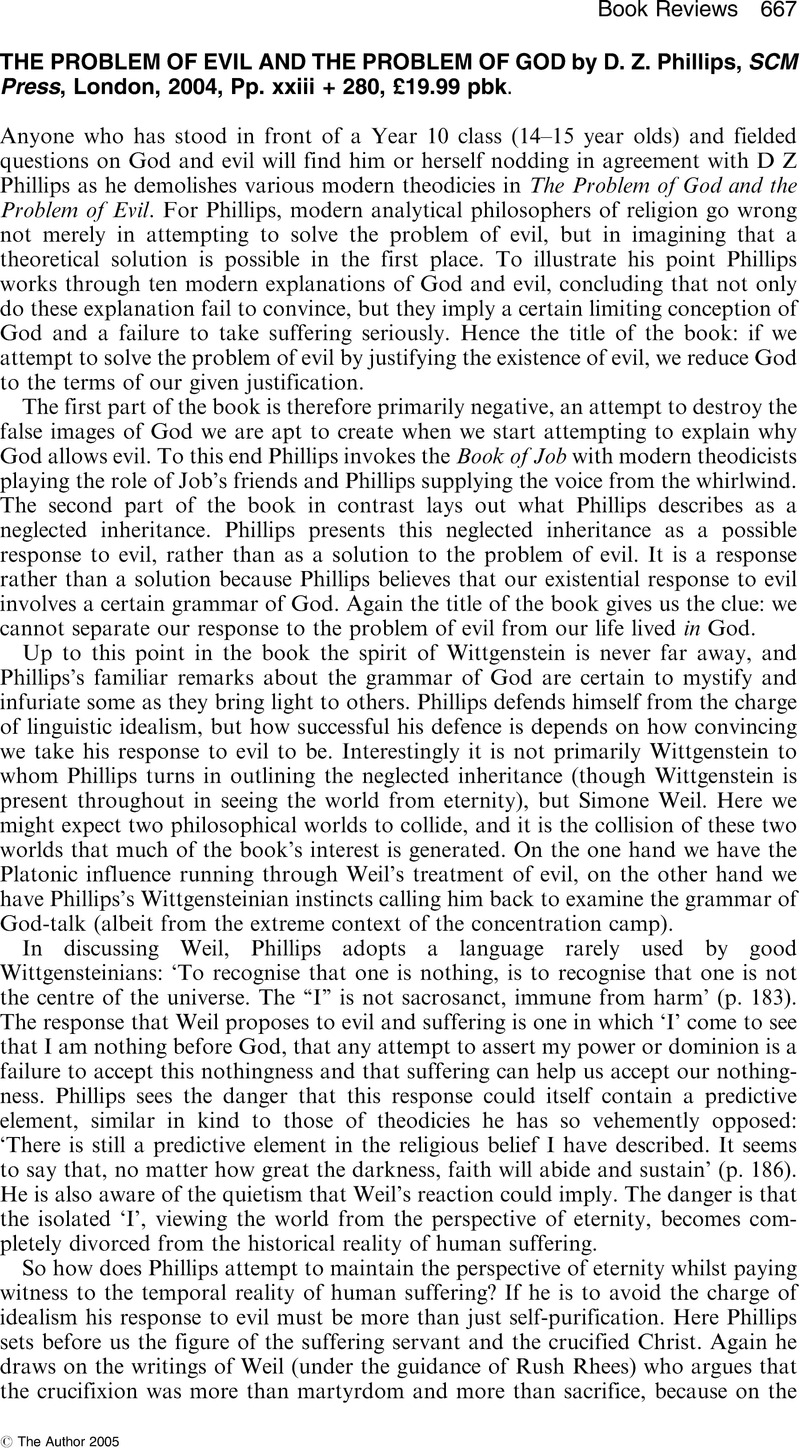No CrossRef data available.
Article contents
The Problem of Evil and the Problem of God by D. Z. Phillips, SCM Press, London, 2004, Pp. xxiii + 280, £19.99 pbk.
Review products
The Problem of Evil and the Problem of God by D. Z. Phillips, SCM Press, London, 2004, Pp. xxiii + 280, £19.99 pbk.
Published online by Cambridge University Press: 01 January 2024
Abstract
An abstract is not available for this content so a preview has been provided. Please use the Get access link above for information on how to access this content.

Information
- Type
- Reviews
- Information
- Copyright
- Copyright © The Author 2005

